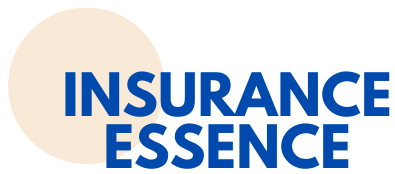1. Hey there, business owners! Let’s talk insurance!
Insurance is one of those things that everyone needs but no one really wants to think about. It’s not exactly the most exciting topic, but it is incredibly important. Whether you’re a small business owner or a large corporation, having the right insurance coverage can save you from financial ruin in the event of a disaster. But with so many different types of insurance, it can be overwhelming to figure out what you actually need. That’s where I come in. In this blog post, I’m going to give you all the insider tips you need to know about commercial and business insurance in the US. So let’s dive in and get started!

2. Why do you need commercial and business insurance? Let me break it down for you!
Insurance may not be the most thrilling topic, but understanding why you need commercial and business insurance can save you from major headaches down the road. Here’s the deal: accidents happen. From unexpected disasters to workplace injuries, there are countless risks that businesses face on a daily basis. That’s where insurance comes in.
Commercial and business insurance provides a safety net for your company’s assets, employees, and customers. It shields you from financial losses in the event of property damage, lawsuits, or even employee injuries. Without insurance, you could be left footing the bill for costly legal fees, medical expenses, or property repairs. Trust me, you don’t want that kind of burden on your shoulders.
Having the right insurance coverage tailored to your specific business needs is crucial. It not only protects what you’ve worked so hard to build but also gives you peace of mind knowing that you’re prepared for the unexpected.
So, now that you understand the importance of commercial and business insurance, let’s talk about the different types of coverage options available in the next section. Stay tuned!
3. Don’t let a cookie-cutter policy hold you back – find the insurance plan that suits your unique needs!
Now that you know the importance of commercial and business insurance, it’s time to dive deeper into the different types of coverage options available. It’s crucial not to settle for a cookie-cutter policy that may not fully protect your unique business needs.
First, assess the specific risks your business faces. Depending on your industry, you may require specialized coverage such as professional liability insurance, product liability insurance, or cyber liability insurance. These policies protect you against claims arising from errors, accidents, or data breaches.
Next, consider your property and assets. Commercial property insurance covers damages to your physical location, while business interruption insurance compensates for lost income during periods of temporary closure.
Worker’s compensation insurance is essential if you have employees. It not only protects your workers in case of injury but also shields you from potential lawsuits.
Finally, evaluate the value of your company’s reputation and brand. General liability insurance safeguards against third-party claims of bodily injury, property damage, or defamation.
By customizing your insurance plan to meet your specific needs, you’ll ensure comprehensive coverage and peace of mind. In the next section, we will delve into how you can find the right insurance plan for your business. Stay tuned!
4. Want to save some dough? Here’s how you can find the best insurance deals in the US!
Now that you know the types of coverage options available for commercial and business insurance, it’s time to save some dough and find the best insurance deals in the US! Trust me, you don’t want to break the bank on insurance premiums.
First, start by shopping around and comparing quotes from different insurance providers. Don’t settle for the first offer you receive. Different insurers may have varying rates and coverage options, so take the time to explore your options.
Consider working with an independent insurance agent who can help you navigate the complex world of insurance policies. These agents have access to multiple carriers and can tailor coverage to your business’s specific needs. They will also guide you through the application process and provide you with valuable advice.
Another strategy to save money on insurance is to bundle your policies. If you need multiple types of coverage, like property insurance and general liability insurance, consider bundling them together with the same insurer. Many companies offer discounted rates for bundled packages.
Lastly, don’t forget to review your policy annually. As your business evolves and grows, your insurance needs may change. By reassessing your coverage on a regular basis, you can ensure that you’re not overpaying for unnecessary coverage or underinsured in critical areas.
In the next section, I’ll share some insider tips on negotiating with insurance providers and getting the best deals. Don’t miss out, it’s going to be a game-changer for your business’s bottom line!
5. Get the lowdown on the different types of insurance coverage options available to protect your business.
In the last section, we discussed ways to save money on commercial and business insurance. Now, let’s dive into the different types of coverage options you can choose from to protect your business.
1. General Liability Insurance: This coverage protects your business against claims of bodily injury, property damage, and personal injury. It is essential for businesses that interact with customers or have physical premises.
2. Property Insurance: Property insurance covers any damage or loss to your building, equipment, inventory, and other assets. It provides financial protection in case of fire, theft, vandalism, or natural disasters.
3. Professional Liability Insurance: Also known as errors and omissions insurance, this coverage is crucial for professionals who provide services to clients. It protects against claims of negligence, errors, or omissions that may lead to financial loss for the client.
4. Workers’ Compensation Insurance: If you have employees, workers’ compensation insurance is mandatory in most states. It provides medical benefits and wage replacement to employees who suffer work-related injuries or illnesses.
5. Cyber Liability Insurance: With the increasing threat of cyberattacks, this coverage protects your business against data breaches, hacking, and other cyber risks. It helps cover the costs of notifying affected customers, data recovery, and legal expenses.
Understanding these different types of coverage options will help you determine which policies are necessary to safeguard your business. Stay tuned for the next section, where I’ll share tips on how to negotiate with insurance providers and get the best deals for your business.
6. Your insurance provider should be your ally – let’s discuss why you need a reliable partner in this journey.
When it comes to commercial and business insurance, having a reliable and trustworthy insurance provider can make all the difference. They should be more than just a company that sells you policies; they should be your ally, working alongside you to protect your business and help you navigate the often complex world of insurance.
A good insurance provider will take the time to understand your unique needs and risks. They will guide you through the process of selecting the right coverage options for your business, ensuring that you have adequate protection without paying for unnecessary policies.
Moreover, a reliable insurance partner will be there for you when you need them the most – during a claim. They should be responsive, efficient, and dedicated to helping you get back on your feet as quickly as possible.
So, how do you find such an insurance provider? One way is to ask for recommendations from other business owners who have had positive experiences. You can also read online reviews and ratings to get a sense of their reputation and customer satisfaction.
Remember, choosing the right insurance provider is not just about price but also about the level of service and support they can offer. Trust your instincts and don’t settle for anything less than a true partner in protecting your business.
In the next section, we’ll discuss some valuable tips on how to negotiate with insurance providers and get the best deals for your business.
7. Wrapping up with some final words of wisdom – don’t skimp on insurance, folks! Keep your business covered, always.
Wrapping up with some final words of wisdom – don’t skimp on insurance, folks! Keep your business covered, always.
When it comes to commercial and business insurance, it’s crucial not to cut corners or take unnecessary risks. Your business is your livelihood, and without proper insurance coverage, you could be leaving yourself vulnerable to financial ruin.
We understand that insurance can be expensive, especially for small businesses with tight budgets. However, trying to save money by skimping on insurance is a recipe for disaster. One small incident or unexpected event can easily result in immense financial losses that could have been mitigated with the right insurance coverage.
Instead of focusing solely on the cost, consider the potential consequences if you don’t have adequate insurance. Take the time to evaluate the risks specific to your business and the industry you operate in. This will help you determine the types of coverage you need and the limits that will adequately protect your assets.
It’s also important to review your insurance needs periodically as your business grows and evolves. As you take on new risks, expand your operations, or introduce new products and services, your insurance requirements may change. Don’t assume that your existing policies will continue to provide sufficient coverage.
Lastly, don’t forget to regularly reassess your insurance policies and shop around for better deals. Insurance providers’ rates can vary significantly, and you don’t want to overpay for coverage that you can find at a lower price elsewhere.
Remember, the goal is not just to find the cheapest insurance but to strike the right balance between cost and coverage. Look for insurance providers that have a strong reputation, excellent customer service, and a track record of handling claims efficiently. By doing your due diligence and investing in quality insurance, you’re safeguarding your business’s future and giving yourself peace of mind.

